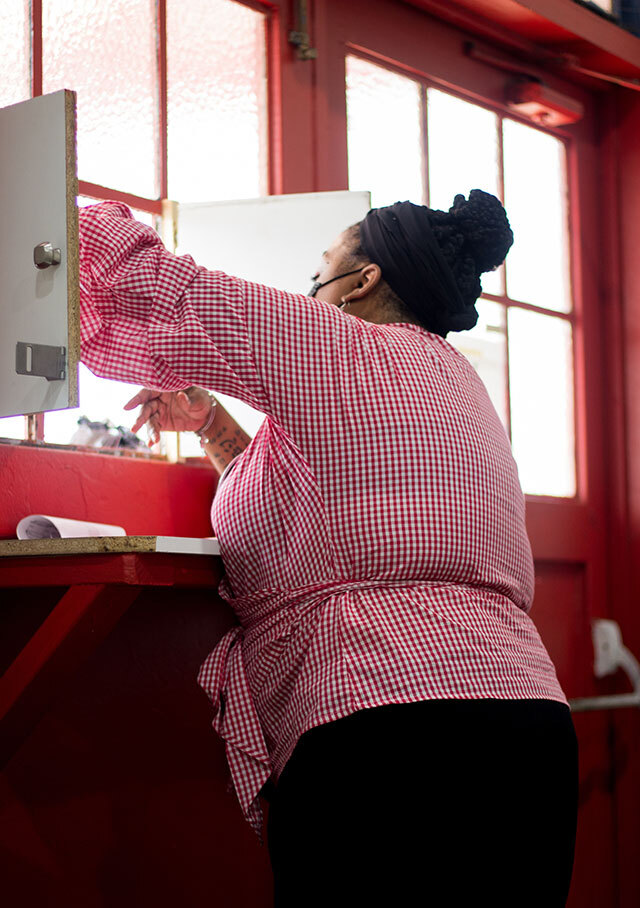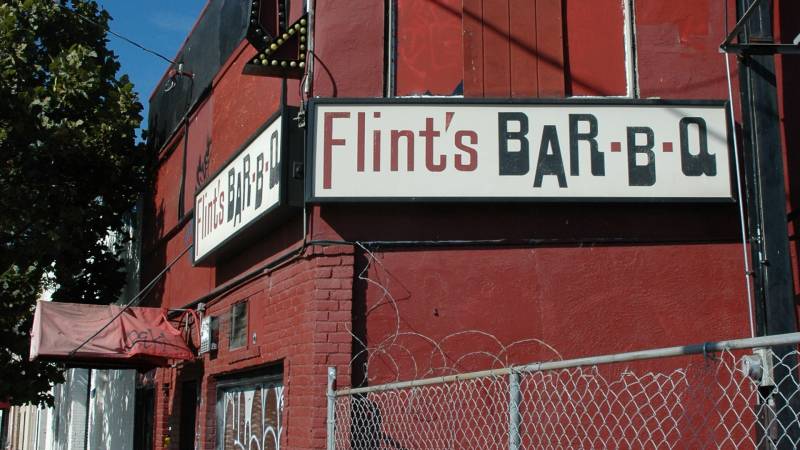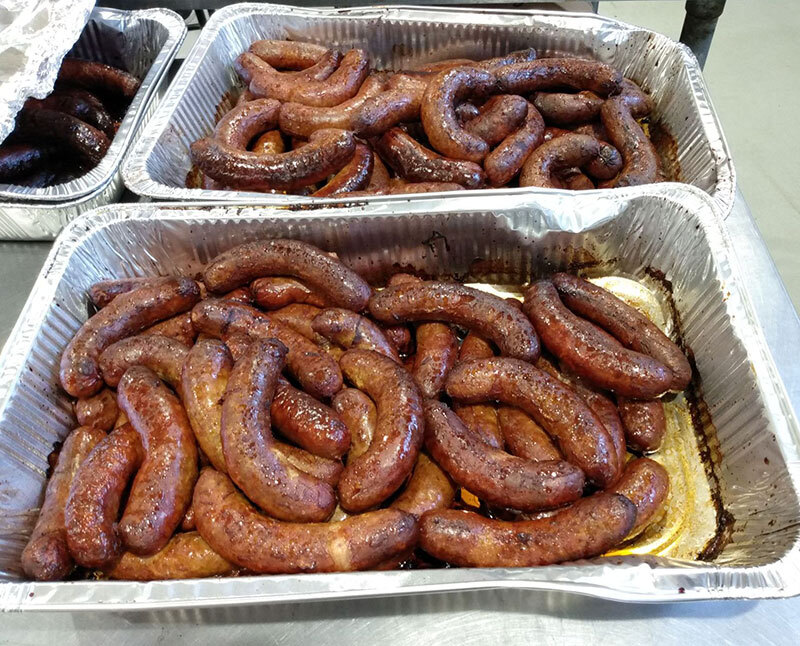The dark red barbecue sauce at Flint’s Barbecue was deep in flavor, never too sweet. The house-made links were coarse-ground to maximize sauce absorption—the best around, according to the restaurant’s loyal fans. And by the time the restaurant closed the last of its three locations in Oakland in 2010, its legend was secure: To this day, there is no shortage of old-timers who insist that Flint’s was, without question, the greatest of all time, especially during the restaurant’s heyday in the 1970s and ’80s.
Then it was gone for good—until two years ago, that is, when Crystal Martin, the granddaughter of founder Willie Flintroy, resurrected the Flint’s name with a series of pop-ups featuring all of the original recipes. Now, Martin says she’s one step closer to realizing her ultimate dream: to reopen Flint’s as a full-fledged restaurant at one of its original locations. Specifically, she’s in negotiations to lease the old Flint’s location at 3114 San Pablo Ave. in West Oakland—the same restaurant where she helped out as a kid, peeling potatoes for the potato salad in the prep kitchen area in back. (“That’s all I could do,” Martin recalls.)

The building has sat empty since that particular Flint’s closed in the late ’90s. At first, the whole point of the pop-ups was to build up enough capital to try to buy the place outright, Martin says. Instead, someone else recently bought the building, and the new owner reached out to Martin to see if she’d be interested in leasing the space—the first time that’s been a viable option since the restaurant closed.
There’s still a long way to go, however, before a reborn Flint’s restaurant becomes a reality. Martin says that in order to purchase all of the necessary kitchen equipment and to cover the first few months of rent while she gets the business off the ground, she needs to raise at least $75,000 to $100,000. She’s launched a GoFundMe campaign. Her hope is that the legion of folks who are nostalgic for Flint’s glory years will rally together to support the effort.
Still, the very prospect of bringing Flint’s back to one of its original homes has Martin feeling excited and hopeful. When she did a walkthrough a couple of weeks ago, it was the first time she’d been back in the space since the San Pablo Avenue location closed. As soon as she walked in the door, Martin says, she was flooded with memories of the time she spent there as a kid.



